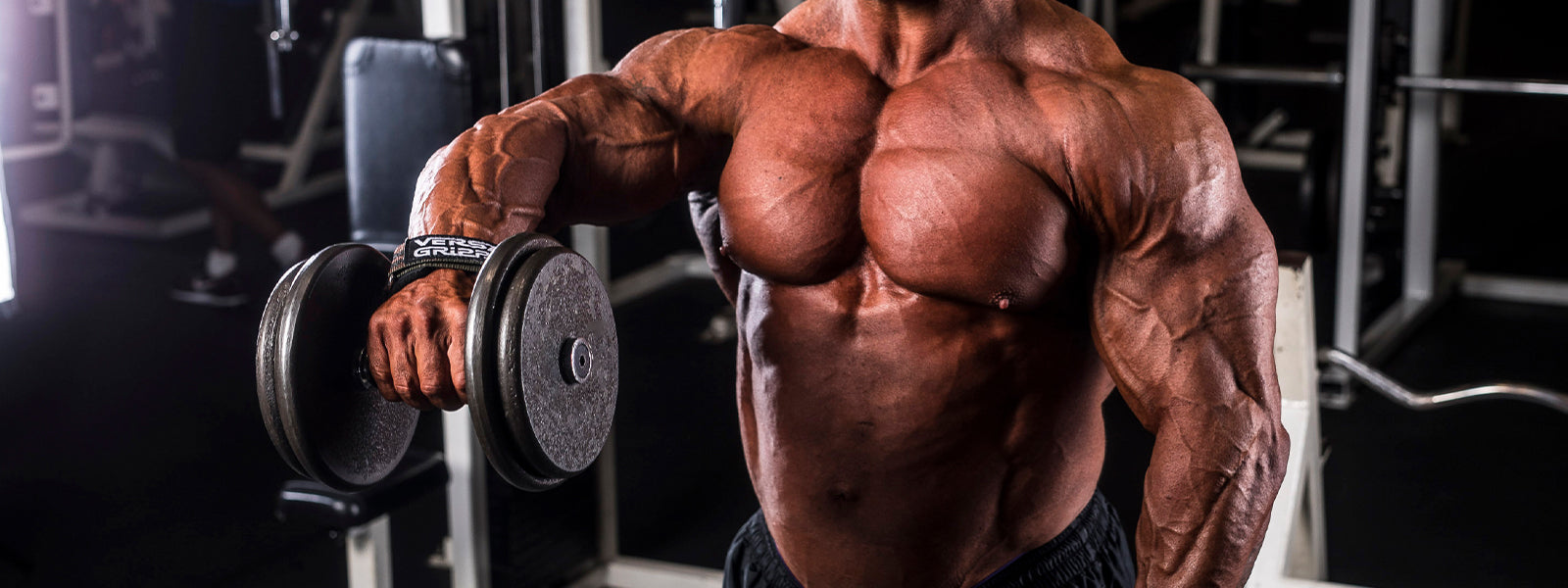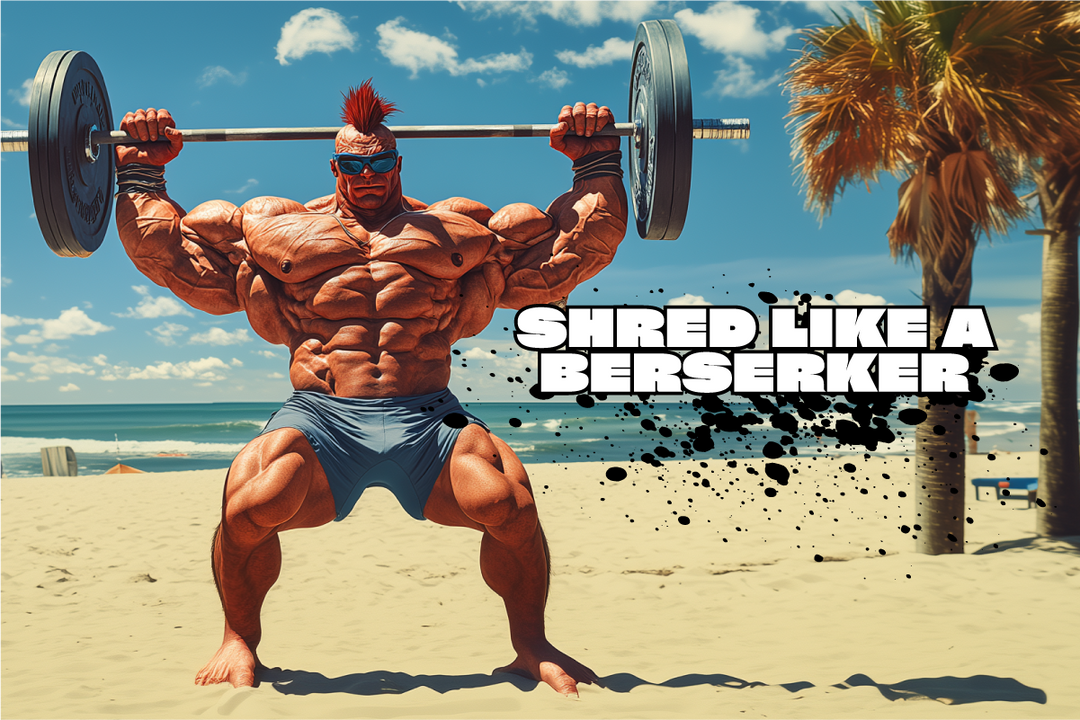The 6 Best Dumbbell Shoulder Workouts for Capped Deltoids

Want strong shoulders but lack time or equipment? Don't fret! Dumbbell shoulder workouts are here to save the day. You can get a complete deltoid pump with a limited weight range and just 30 minutes. These exercises are so versatile that you won't need a gym—just grab your dumbbells and start sweating!
Here, we’ll go over the ideal dumbbell shoulder workout, what set and rep ranges work best for dumbbell shoulder exercises, and how to maximize other factors for an extremely effective shoulder workout.
The Complete Dumbbell Shoulder Workout
Seated Dumbbell Shoulder Press
Opting for the seated dumbbell shoulder press over standing is to brace your body against the bench, prompting you only to use your shoulders for the movement; the standing alternative engages your core.
Make sure to achieve full range of motion; bring your hands (and dumbbells) down to the caps of your shoulders, then press your arms so both dumbbells are over your head and your elbows and shoulders reach as far above as possible, meeting the center (without touching) to full contract your deltoids.
Arnold Press
A variation of the seated shoulder press, Arnolds are done by rotating your arms until the palms of your hands face you at the bottom of the movement, and the dumbbells are in front of your upper chest. This external rotation and pressing combo engage all three shoulder deltoids — front, lateral, and rear.
As you lift the dumbbells, externally rotate the shoulders and elbows until you finish in a traditional shoulder press position at the top.
Front Raises
Using somewhat lighter weights for the next three exercises, the front raise has you standing and going from dumbbells resting at your sides to being lifted straight in front of you. Don’t swing your arms or use your body’s momentum to lift the dumbbells. Slow and controlled is the name of the game. Also, don’t let your arms raise past being parallel to the ground to protect your shoulder joints.

Side Raises
As the front raises, you lift the dumbbells to make a capital T with your arms. Using the same weight for the front, side, and rear delt raises will keep your shoulder caps as symmetrical as possible. Again, lower the dumbbells back down once you’ve raised them laterally to parallel the ground to keep your deltoids safe.
Rear Delt Flyes
For this exercise, sit on a flat bench and bend your torso over your upper legs. Begin with the dumbbells in your hands by your ankles, then raise your shoulders back so that it looks like you’re trying to fly. Your upper back, shoulders, elbows, and hands should be in a straight line parallel to the floor.
Note: Rear delt flyers can cause injuries because we don’t use our rear delts too often for this workload. Be careful and go slow with the movement.
Dumbbell Shrugs
This finisher exercise allows you to go heavy to fatigue the shoulders fully. Simply hold the dumbbells at your sides and shrug your shoulders up, pausing for a full second at the top to get a complete contraction.
We have two or three sets for moderately high repetitions for all these exercises. This is to induce hypertrophy or overall muscle growth. So long as you’re progressively overloading the exercises – going up either in reps or weight every workout – you should see changes in your shoulder size and strength in a few months.
Article by Terry Ramos




